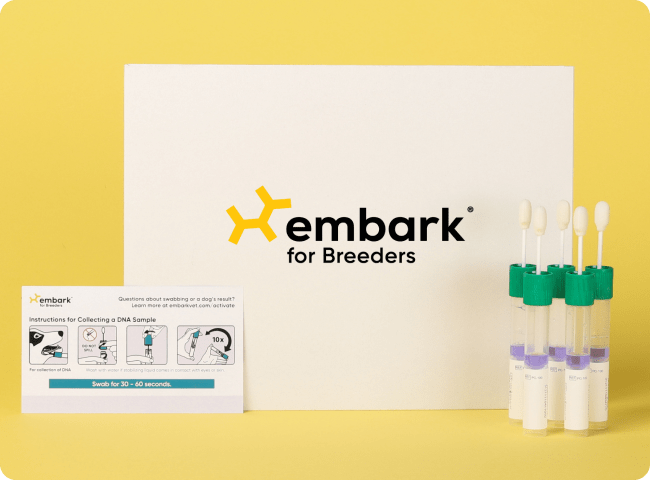Sheepadoodle
Fun Fact
Sheepadoodles, like many other mixed breed dogs with Poodle heritage, can be traced back to the 1990s when the idea of producing dogs that have low-shedding hair caught on.
-
About Sheepadoodles
Sheepadoodles (also known as Sheepapoos or Sheeppoos) are a popular designer breed dog since their ancestry generally makes them intelligent, loving, and undeniably adorable. While their looks vary based on specific traits inherited from their parents, Sheepadoodles remind us of cuddly teddy bears and make hearts melt wherever they go. Sheepadoodles are crossbred from Old English Sheepdogs and Poodles. Their origins are not entirely known. Designer dogs bred from Poodles are usually traced back to the 1990s when the idea of producing dogs that have low-shedding hair caught on. -
Physical traits
Apart from their big hairy paws, floppy ears, and shaggy hair that grows over their eyes, here are other physical characteristics Sheepadoodles have: - Size. As with other “doodle” mixes, a Sheepadoodle’s varied Poodle genetics impact their size. However, even a Toy Poodle can produce a Mini Sheepapoo that weighs 24–44 pounds, which most consider larger than “mini.” A Standard Sheepadoodle will be larger, about 60–80 pounds, but their winning personality is the same regardless of size.
- Coat and coloring. Many Sheepadoodles are black and white and resemble fluffy panda bears. Sheepadoodles may also be gray, white, red, cream, or brindle, depending on their parents’ coat color genetics. Their coats vary in texture from long and slightly wavy to curly, as do most “doodle” crossbreeds.
-
Nutrition
Sheepadoodles are very active and benefit from two to three smaller meals each day. Bloat can be an issue if they eat quickly, so you may want to use a blow designer to slow the rate at which your dog consumes food. They love to eat and demolish all the food put in front of them, so don’t let them fool you into thinking they are always hungry. As with any dog, consult your veterinarian about your dog’s nutritional needs and ideal weight. -
Grooming and shedding
People often consider Sheepadoodles to be hypoallergenic because of their low-shedding hair. However, it’s important to note that dogs can retain outdoor allergens on their coats. If you have allergies to pollen, dust, grass, or mold, consider keeping your dog’s hair short and bathe them regularly with a gentle shampoo to minimize allergen exposure. Though Sheepapoos don’t shed much, they need grooming. If your dog’s coat is curly from its Poodle parent, you need to brush regularly to prevent knots and mats from forming. If your dog’s coat is straighter, it may be brushed less often but will shed more. True to their Sheepdog roots, they need trims to keep the hair out of their eyes. They have very thick, warm coats and could be more comfortable when shorn in summer. But remember, dogs can get sunburned too. Their floppy ears will need cleaning, as dirt and moisture get easily trapped inside. In addition, some Sheepadoodles have hair inside their ears that can predispose to ear infections. Ask your vet for the best pH-balanced ear cleaner for your dog and if hair removal is appropriate and the best method for doing so. Gently clean the outer ear (not the flap of the ear but the external ear canal) with the recommended cleaner regularly and after bathing or swimming, checking for soreness, redness, or a foul odor that might indicate an infection. -
Playtime and training
Sheepadoodles are generally considered beloved family dogs. Friendly, obedient, expressive, and loyal, they love their people and want to please them. Though they will bark to warn their family, they are not faithful watchdogs and shy away from aggression. Their energetic and hunting or herding nature will show in their running, playing, and swimming. Their intelligence makes them fast learners—and since they love challenges, new tricks and games are always welcome. Sheepadoodles need early socialization and are easy to train with positive reinforcement. Their herding instinct requires attention if you have kids or smaller pets. They will treat them as a flock and might nip at them to keep control. Rewards, redirection, and distraction will work in most cases. Sheepapoos may suffer from separation anxiety if left alone a lot. Properly crate training them and getting them used to alone time right from puppyhood is essential for curbing anxiety. -
Health and aging
Sheepadoodles are generally healthy and can live up to 15 years. To ensure the best quality of life for a Sheepadoodle, consider learning more about the genetic health risks most likely to impact this combination of breeds. An Embark Dog DNA Test looks at the following health conditions in Sheepadoodles:
Did you know?
75% of dogs are either at risk for or a carrier of a genetic disease. Embark Dog DNA Tests screen for 250+ genetic health risks so you can give your dog the proactive care they deserve. Early detection of genetic health risks allows Sheepadoodle owners the opportunity to detect issues early on and develop a proactive care plan with their veterinarian. Genetic testing can help dog lovers give their dogs the best care and quality of life for many years to come. -
Health Conditions
Learn about your dog's genetic breed ancestry with Embark
Dog owners
Breed identification, health and trait insights, personalized care recommendations, and the world’s first canine relative finder—all in one leading dog DNA test.
Learn about the report for dog ownersShop the test
Breeding programs
Embark’s test for breeding programs is one comprehensive DNA test designed with your needs in mind.
Learn about the report for breedersShop the test

